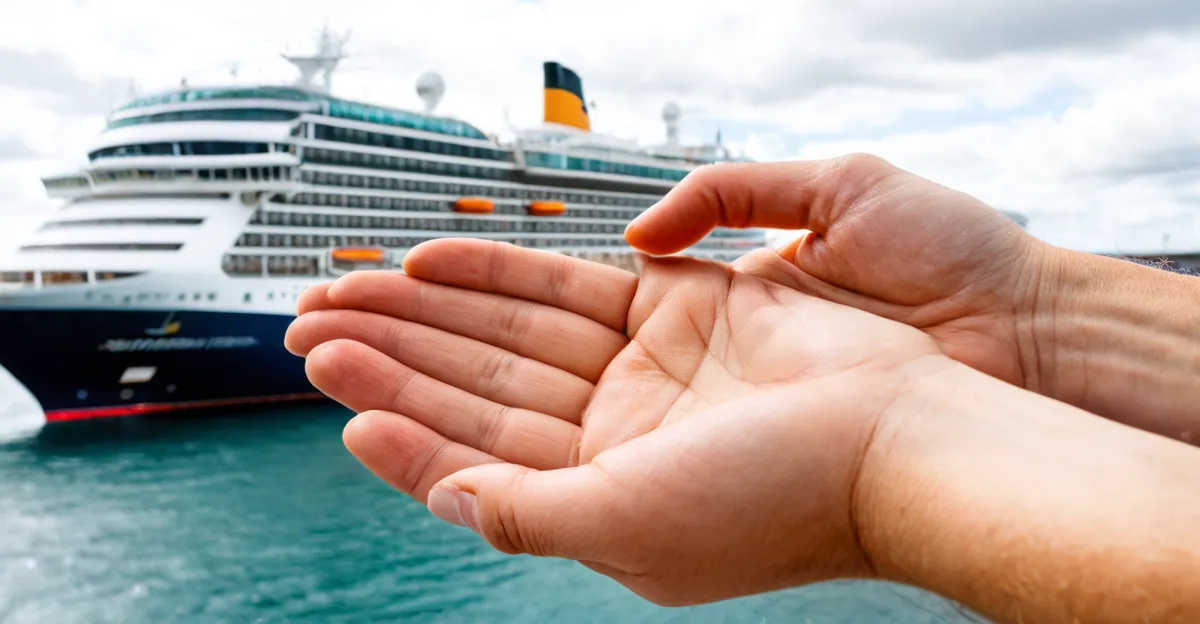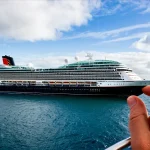Direct economic contributions of UK cruises to local economies
Cruise tourism in the UK generates significant economic impact through passenger and crew spending. When cruise ships dock, visitors often spend on local attractions, dining, and shopping. This tourism spending directly benefits small businesses, from cafes to souvenir shops, boosting local business revenue. The influx of tourists injects fresh income into port towns, often during off-peak seasons, providing a valuable economic stimulus.
Port fees paid by cruise lines represent another critical revenue stream. These fees, along with various taxes and direct payments to port authorities, fund infrastructure maintenance and local services. This cycle ensures ports remain well-equipped to handle ships efficiently, which in turn attracts more cruise traffic.
Also to see : What Challenges Do Cruise Travelers Face When Exploring UK Attractions?
Cruise companies also increase demand for local goods and services, from supplies to logistics support. This demand supports local suppliers and service providers, spreading the economic benefits beyond immediate port areas. Combining passenger expenditure, port fees, and supply purchases, the UK cruise economic impact is an essential driver for many coastal communities, fostering sustained growth and economic diversity.
Employment and job creation driven by the cruise industry
The cruise industry plays a crucial role in supporting local employment throughout the UK. It directly generates numerous jobs including port staff, hospitality teams, and transportation workers. These positions are essential for smooth operations, customer service, and logistics at ports, making the industry a key employer in many coastal communities.
Have you seen this : How Can Cruise Travel Impact the Popularity of UK Tourism?
Beyond direct roles, the cruise sector stimulates indirect job creation in the supply chain and various service providers. Industries such as food suppliers, maintenance companies, and retail outlets benefit significantly from cruise activity. This interconnected network supports wider economic growth and helps sustain smaller businesses dependent on cruise tourism.
Investment in cruise jobs UK often involves dedicated training programs and career pathways. Many UK regions hosting cruise terminals offer specialized courses to equip local residents with the necessary skills in hospitality, maritime operations, and customer service. This creates opportunities for career advancement and long-term employment in a burgeoning sector.
Overall, the sector growth benefits UK communities by enhancing employment options and boosting the economy, highlighting the vital importance of the cruise industry’s continued development.
Stimulating local tourism and supporting infrastructure
Cruise tourism in the UK significantly boosts visitor numbers and extends the duration of stays in regional ports. Ports like Southampton, Liverpool, and Edinburgh have experienced increased footfall, benefiting local businesses and cultural sites. This growth not only attracts cruise passengers but also encourages spending in shops, restaurants, and attractions.
Such growth demands and justifies investment in infrastructure, leading to improvements in port facilities and surrounding transport networks. These investments enhance the overall visitor experience, making regional destinations more accessible and appealing for both cruise tourists and other travelers.
For instance, Southampton’s upgraded terminal facilities have streamlined passenger flow, while Liverpool has prioritized waterfront regeneration, enriching its appeal. Edinburgh’s expansion of dock amenities has supported larger vessels, bringing more visitors to Scotland’s historic capital.
Enhancements in ports and supporting infrastructure are crucial for regional development, as they create jobs, improve local economies, and foster sustainable tourism. This synergy between UK cruise tourism and infrastructure investment underscores the importance of continued support for port cities to maintain their competitive edge and stimulate broader economic growth.
Beneficiaries among local businesses and the supply chain
Cruise tourism plays a significant role in boosting local business support within port cities. The cruise supply chain often sources a wide array of products from nearby vendors, including fresh food, beverages, and locally crafted souvenirs. This direct demand fosters economic activity that might otherwise be limited to traditional retail or tourism channels.
Small and family-run enterprises particularly benefit from cruise excursions. These excursions frequently partner with local guides and small tour operators, ensuring passengers experience authentic cultural and natural attractions. This strategy not only enriches the passenger experience but also channels revenue into the hands of small businesses, sustaining livelihoods in the community.
Moreover, collaboration between cruise companies and local vendors strengthens supply networks. Shipping goods directly from local producers reduces transportation costs and supports sustainable business practices. Businesses supplying food and beverages often adjust their offerings to meet cruise passengers’ preferences, creating a tailored and mutually beneficial relationship.
In summary, the interaction between the cruise supply chain and local business support creates a positive economic ripple effect, particularly encouraging small business impact in destination areas. This symbiosis underlines the importance of integrating local enterprises within cruise operations.
Challenges and Critical Perspectives on Local Economic Impact
The cruise industry challenges often begin with its seasonal nature, leaving many destinations dependent on fluctuating visitor numbers. During off-peak months, local economies may struggle as cruise arrivals wane, revealing an over-reliance that can hinder sustainable growth. This volatility complicates financial planning for businesses that count heavily on cruise passengers.
Environmental and sustainability concerns are another pressing issue. Increased cruise traffic contributes to higher emissions and marine pollution, straining coastal ecosystems. Many ports wrestle with mitigating these impacts while accommodating the demand for cruise tourism. The pressure on local infrastructure, such as waste management and water resources, grows as cruise ships dock more frequently.
Balancing economic benefits with residents’ quality of life remains a critical challenge. While cruise visitors boost spending in shops, restaurants, and attractions, increased tourist density can lead to overcrowding, noise, and disruptions in daily life. Communities must navigate these trade-offs carefully, ensuring that long-term development prioritizes both economic vitality and social wellbeing.
Overall, addressing these concerns requires coordinated efforts from industry stakeholders, policymakers, and local communities. Sustainable strategies can help harmonize the positive economic impact of cruise tourism with environmental stewardship and resident satisfaction.











